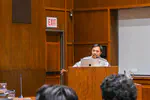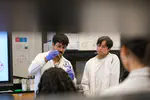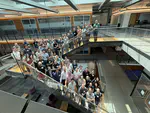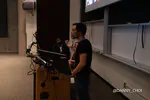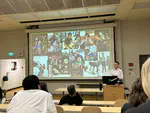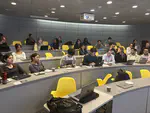Research
Overview - Programmable molecular systems
Our mission is to enable precision and personalized approaches to medicine via the development of molecular and nanoscale technologies that are amenable to rational design (i.e. programmable). Our current efforts largely focus on engineering immune-based therapies to treat cancer and cellular diagnostics. We are an interdisciplinary research laboratory working at the intersection of nanotechnology, molecular engineering, immunology, and computational biology.

Immune-therapeutics and personalized vaccines
In defense of a vast border, our immune system has evolved intricate mechanisms to recognize pathogenic microbes such as viruses and bacteria. Using a range of techniques - DNA nanotechnology, molecular engineering, materials chemistry - we can engineer biosynthetic nanotechnologies that recapitulate the signals presented by these pathogens. We are using this capability to develop therapeutic strategies that direct powerful immune responses against complex diseases such as cancer.
Learn more
Learn more
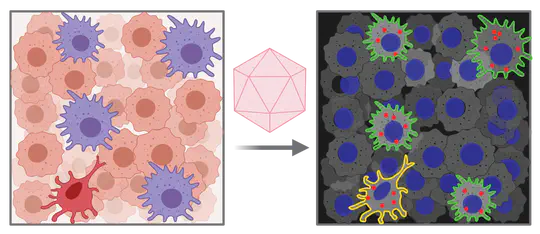
Molecular and single-cell technologies
Much of what happens inside the body is hidden to us, but are collectively encoded by incredible cell-type diversity and cell-cell interaction networks. We combine seemingly distant fields - DNA nanotechnology, machine learning, imaging, and microfabrication - to develop assays with unprecedented abilities to unravel this complexity of biological systems, dissect cell phenotypes, and diagnose diseases.
Learn more
Learn more

Latest News
Amir, Travis, and Shana’s work, now published in the Journal of the American Chemical Society, showed that PEG grafted oligolysines can stabilize DNA origami while mediating interactions of surface-displayed ligands with cellular receptors. Congratulations team!
We joined remotely to the conference located in France, along with U Oxford, UK; IISc in Bengaluru, India; and Institut Curie, Paris.
Meghan and Eric also gave talks on their research projects examining lymph node trafficking of DNA origami and tuning DNA origami immunogenicity
See BME news coverage here and SGS profile here. Congratulations Amir!
